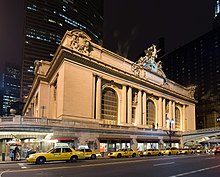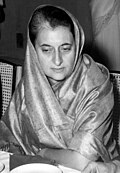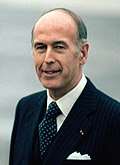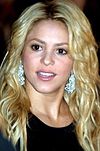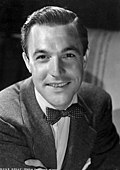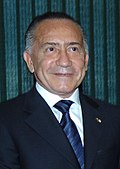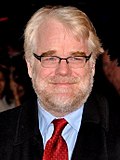February 2
Contenido keyboard_arrow_down
February 2 is the 33.ᵉʳ (thirty-third) day of the year in the Gregorian calendar. There are 332 days to the end of the year and 333 in leap years.
Events
- 186 B.C.: In Gansu, China, an earthquake of magnitude 6.5 occurs on the seismological scale of Richter, which leaves a balance of 760 dead.
- 506: Alarico II, king of the Visigoths, promulgates the Lex Romana Visigothorum (o) Breviary of Alarico), in which the Roman Law in force in the Visigoth Kingdom of Tolosa is collected.
- 850: King Ordoño I is crowned in Oviedo.
- 865: near Miranda de Ebro (Spain) the battle of the Morcuera is waged, in which Muhammad I of Córdoba beats Rodrigo de Castilla.
- 962: In Rome, Pope John XII consecrates emperor of the Holy Roman German Empire to Oton I consider this fact the beginning of the empire.
- 1207: Terra Mariana, which included the current Estonia and Latvia, is established.
- 1386: Vladislao II is crowned king and unites the Grand Duchy of Lithuania and the Kingdom of Poland.
- 1428: earthquake of Catalonia, with epicenter near Camprodon.
- 1461: The battle of Mortimer’s Cross is waged in Herefordshire, England—in the framework of the Roses War.
- 1529: in New Granada (present-day Colombia) Ambrosio Alfinger, in charge of the expedition of the Welser Family, disembarkation in Santa Marta. This fact begins the colonizing experience of the Welser, which will end in complete failure.
- 1536: in the Rio de la Plata, the Spanish Pedro de Mendoza founded the port of Nuestra Señora María del Buen Aire, where today is the city of Buenos Aires.
- 1542: In northern Ethiopia, the Portuguese forces under the orders of Christovão da Gama capture a strong Muslim in the battle of Baçente.
- 1543: Ruy López de Villalobos begins the colonization of the archipelago of the Philippines, thus baptized in honor of Prince Philip of Spain.
- 1653: New Amsterdam, later called New York, acquires the city category.
- 1709: On a Pacific Ocean Island, Scottish Marine Alexander Selkirk (1676-1721) is rescued after living four years on a desert island. His story will inspire British writer Daniel Defoe to write his novel Robinson Crusoe.
- 1737: a terrible fire, which was called the “Big Fire”, devastates the city of Panama.
- 1814: The Spanish Courts set a series of measures before Fernando VII's imminent return, in order to impose itself on the monarch (the last hope of the absolutists for the restoration of the old regime). Thus, the Regency marks the itinerary that the monarch must follow in his return, the honors with which he must be received and the oath of the Constitution of 1812 as a step before his recognition.
- 1816: An estimated earthquake of 8.3 to 8.9 is recorded in the Atlantic Ocean that causes a tsunami.
- 1837: Pope Gregory XVI inaugurates the Etruscan Museum of the Vatican.
- 1841: In San Salvador, the capital city of El Salvador, a Constituent Assembly proclaims the separation of El Salvador from the Federal Republic of Central America.
- 1848: signature of the Treaty of Guadalupe Hidalgo. The Mexican government—in the framework of the U.S. War of Intervention—is giving more than half of its territory to the United States: the totality of what is now the states of California, Arizona, Nevada and Utah; as well as part of Colorado, New Mexico and Wyoming; the Rio Bravo del Norte is established as the dividing line between Texas and Mexico.
- 1851: In Guatemala the battle of the Arada is waged, in which the forces led by the Guatemalan general Rafael Carrera and Turcios defeat the invasive coalition of El Salvador and Honduras.
- 1866: In Madrid an attempt to overthrow the unionist government fails.
- 1878: in Chaco (Argentina) Fundación de la Ciudad de Resistencia, Argentina.
- 1887: In Punxsutawney (United States) the Marmota Day is celebrated for the first time.
- 1892: in Madrid (Spain), Santiago Ramón y Cajal is appointed as a professor of Histology and Pathological Anatomy at the University of Madrid.
- 1900: In the Philippines, the U.S. authorities disclose their plans for the administration of the islands, stressing that a withdrawal from the archipelago is not possible and that the Filipinos “are not prepared for independence”.
- 1900: In Spain a law on accidents at work is enacted.
- 1900: In the United States, the associations of the cities of Boston, Detroit, Milwaukee, Baltimore, Chicago and San Luis ratify the agreement created by the American Baseball League. Each of them will provide $1,200 for the arks of the new entity. Providence and Philadelphia clubs are to be ratified.
- 1913: The Grand Central Terminal, the largest railway station in the world, is inaugurated in New York.
- 1914: inauguration in Tanzania of the railway line of 1250 km that unites Lake Tanganica with the capital, Dar es Salaam.
- 1920: the Soviet Union recognizes the independence of Estonia.
- 1921: demonstrations in Germany against war reparations agreements.
- 1922: the novel is published UlyssesJames Joyce.
- 1923: the proof of regularity of motorcycling Barcelona-Zaragoza-Barcelona begins. 48 vehicles are registered.
- 1930: in Chile, President Carlos Ibáñez del Campo promulgates a new Civil Registry Law.
- 1931: In Argentina the anarchist militant Paulino Scarfó is shot.
- 1932: The League of Nations seeks to end the Chinese-Japanese conflict.
- 1938: In Spain—in the framework of the Spanish civil war won by the Francoists—the shield and the imperial crown of the Catholic Kings are restored as emblems of that country.
- 1939: ruptured diplomatic relations between the Soviet Union and Hungary as a result of the accession of the latter country to the Antikomintern Pact.
- 1939: the Francoist government decrees the illegality of all religions in Spain except the Catholic one.
- 1940: In Belgrade the Balkan states hold a peace conference.
- 1941: In Bordighera, Italy, there are dictators Francisco Franco and Benito Mussolini.
- 1943: in the framework of the Second World War in the Eastern Front, the Battle of Stalingrad ends in the Soviet Union (the most bloody in the history of humanity) meaning a decisive Soviet victory and the turning point of the conflict in the European theater, as the powers of the axis would begin to retreat in all fields of Eastern Europe.
- 1945: Ecuador declares war on Germany.
- 1945: U.S. troops return to Manila, Capital of the Philippines.
- 1945: in the Spanish Theatre of Madrid the drama is enlarged Infinite prisonJoaquín Calvo Sotelo.
- 1949: In Villarica (Chile) an intense eruption of the Villarrica volcano begins.
- 1951: at the Nevada test site—in the framework of the Ranger operation—the United States detonates the Baker 2 atomic bomb (8 kiloton).
- 1953: the President of the United States, Dwight D. Eisenhower, announces the end of Formosa's neutralization.
- 1955: Christian Dior presents in France his new fashion bust without relief.
- 1957: In the United States, the Leo Castelli Gallery is opened to be the world centre of pop art.
- 1958: in Costa Rica, Mario Echandi Jiménez is appointed president.
- 1959: Indira Gandhi, daughter of Prime Minister Jawaharlal Nehru, is appointed president of the Indian Congress Party.
- 1959: In Venezuela, Rómulo Betancourt takes office as president.
- 1962: state of siege in Guatemala after discovering a conjure to murder the president and all the ministers.
- 1963: More than 100 children die in Biblian (Ecuador) when a school building collapses.
- 1964: the American Ranger VI probe reaches the Moon, but it cannot relay images because of a breakdown in the camera.
- 1964: in the Basque Country, the police stop seven activists from the Basque Nationalist Party.
- 1966: in Barcelona (Spain) is demolished the Camp de Les Corts, former stadium of the Barcelona Club Football.
- 1967: in Nicaragua, General Anastasio Somoza is elected president.
- 1968: re-election of General Alfredo Stroessner as president of Paraguay.
- 1970: in a neurosurgical clinic in Munich (West Germany) the first nerve transplant is successfully performed in the history of medicine.
- 1971: Ecuador calls for the withdrawal of U.S. forces stationed in its territory.
- 1971: in Ramsar (Iran), the Ramsar Convention was signed.
- 1972: in Dublin (Ireland), the British embassy is destroyed in protest on Bloody Sunday.
- 1973: In Dublin (Ireland), 40 000 protesters assault the British embassy as a result of a shooting in the north-eastern city of Londonderry.
- 1973: In the Dominican Republic, Colonel Francisco Alberto Caamaño Deñó along with a small group of men disembarked by Caracoles beach to establish a guerrilla front against the government of Dr. Joaquin Balaguer.
- 1974: in Shaanxi, China, a peasant discovers part of a red-cooked clay warrior. It is the beginning of the most important discovery of the century for China, this humble peasant discovers in his lands, the tip of the iceberg of the Terracota Warriors.
- 1976: At the Palace of the Popes, Avignon (France), 119 paintings from the last period of the Spanish painter Pablo Picasso are perpetrated.
- 1977: The Indian National Congress, led by Indira Gandhi, is divided into two factions after the resignation of the Minister of Agriculture.
- 1978: The Kings of Spain pay tribute to the Spanish republicans killed by the Nazism in the Austrian concentration camp of Mauthausen.
- 1979: In Spain, the Argentinian Francoist Jorge Cesarski (1927-2011)—of the terrorist group Guerrilleros de Cristo Rey—has been granted parole after only one year in prison for the murder of a student.
- 1980: the Parliament of Italy approves, by a large majority, new and harsh anti-terrorist laws.
- 1981: Peru and Ecuador sign a ceasefire.
- 1984: in various cities of Spain, half a million people are manifested against industrial reconversion.
- 1984: in Venezuela, Jaime Lusinchi took office as president.
- 1984: the Government of Costa Rica denies political asylum to 3000 “contras” armed by Edén Pastora.
- 1987: In the city of Mianeh (Iran), the Iraqi Government perpetrated an air strike against civilian populations. In two schools, 79 pupils die.
- 1987: William Casey, CIA director and support of President Ronald Reagan in the Iran-Contras scandal, resigns from his post on health grounds.
- 1988: at the Hotel Ritz (New York) there is the hard rock band Guns N' Roses.
- 1988: in Lancaster, United States, Anne F. Beiler founded the pretzels company Auntie Anne's.
- 1989: in Paraguay, Andrés Rodriguez leads a coup against the regime of General Alfredo Stroessner.
- 1989: in Venezuela, Carlos Andrés Pérez took office as president.
- 1989: in Kabul (Afghanistan capital)—in the framework of the Soviet Invasion of Afghanistan—the last column of the Soviet army is withdrawn.
- 1994: In Venezuela, the provisional mandate of Ramón J. Velásquez was finalized and Rafael Caldera took office.
- 1994: in Kasai, Zair, at least two hundred people die when they derail a train.
- 1995: the Council of Europe approves the European Bioethics Convention, the first research instrument in the medical and scientific fields.
- 1997: In the United States, the Microcredit Summit was inaugurated, an international movement aimed at granting small economic aid to the 100 million poorest families in the world to devote them to concrete productive activities.
- 1998: In Costa Rica, liberal Miguel Ángel Rodríguez Echeverría wins the presidential elections.
- 1999: In the National Congress in Caracas (Venezuela), the inauguration of the president-elect, Hugo Chávez, is celebrated.
- 1999: two earthquakes, one of them of magnitude 5.2 in the Richter scale, followed by less-intensive replicas, sow panic in the Murcia Region.
- 2000: in France the police stop the historic leader of the terrorist band ETA, Juan Carlos Iglesias Chozua, alias Gaddafi.
- 2000: Mexico's National Autonomous University, closed since April 1999, becomes the scene of a mass demonstration, protesting the rise in tuition and demanding student participation in the restructuring of the main university in Latin America.
- 2002: The others, by Alejandro Amenábar, becomes the triumphant film of the Goya Awards with eight statuettes.
- 2002: in Amsterdam (Netherlands) the Crown Prince William Alexander of Orange and the Argentinian Plebeia Máxima Zorreguieta marry.
- 2003: In Lagos, the economic capital of Nigeria, 40 people die in the explosion of a building.
- 2003: In Germany, the Social Democratic Party of Germany (SPD) of Chancellor Gerhard Schröder suffers a severe electoral defeat in the Hesse and Lower Saxony regionals.
- 2004: a team of scientists from the Instituto de Ciencias Materiales de Barcelona (CSIC), led by the researcher Jordi Rius, discovers the atomic structure of the aerinite.
- 2004: World Wetlands Day is celebrated, commemorating the signing of the Convention on Wetlands in the city of Ramsar, Iran, on February 2, 1971.
- 2004: 42 people die in the shipwreck of a ferry at Lake Alberto (Uganda).
- 2004: Swiss tennis player Roger Federer reaches world number 1 for the first time in his career, as he would retain for 237 consecutive weeks, and a total of 310 weeks. Thus the number one that was more time at the top of the Ranking, in a consecutive and total way.
- 2005: the first river of moon milk in a liquid state in the world is discovered in Guipuzcoa.
- 2005: Germany exceeds 5 million stops, record number since the end of World War II.
- 2006: In Muslim countries, the death penalty is declared for anyone who reproduces Mohammed's cartoons in Western newspapers.
- 2007: In Indonesia begins the most intense flooding of the last 300 years.
- 2008: the 3.0 version of Visual Studio.NET (C#) is released.
- 2011: cyclone Yasi hits the northern coast of Australia. It is regarded as the worst cyclone that has passed through that region.
- 2014: presidential elections in El Salvador.
- 2022: In the Province of Buenos Aires, Argentina, a drug-trafficking war leaves dozens of people killed and people detained for consumption of poisoned cocaine.
Births
- 1132: William of Norwich, an English child whose murder was attributed to the Jews (f. 1144).
- 1208: James I of Aragon, king of Aragon, Mallorca, Valencia, count of Barcelona and Urgel, lord of Montpellier, Viscount of Carladés and Fenolleda (f. 1276).
- 1425: Leonor de Foix, queen navarra (f. 1479).
- 1455: John I of Denmark (f. 1513).
- 1494: Bona Sforza of Milan, an Italian aristocrat, wife of the king of Poland (f. 1557).
- 1502: Damião de Góis, Portuguese philosopher (f. 1574).
- 1522: Lodovico Ferrari, Italian mathematician (f. 1565).
- 1537: Toyotomi Hideyoshi, a Japanese military officer (f. 1598).
- 1600: Gabriel Naudé, librarian and French scholar (f. 1653).
- 1649: Benedict XIII, Roman pope (f. 1730).
- 1650: Nell Gwyn, British theatre actress (f. 1687).
- 1669: Louis Marchand, composer, carver and French organist (f. 1732).
- 1700: Johann Christoph Gottsched, German writer (f. 1766).
- 1711: Wenzel Anton Graf Kaunitz, German aristocrat (f. 1794).
- 1754: Charles Maurice de Talleyrand, French Prime Minister (f. 1838).
- 1785: Isabella Colbran, opera singer and Spanish composer (f. 1845).
- 1786: Jacques Philippe Marie Binet, French mathematician (f. 1856).
- 1803: Albert Sidney Johnston, American General (f. 1862).
- 1817: Salvador Sanfuentes, politician and Chilean poet (f. 1860).
- 1829: Alfred Brehm, German zoologist (f. 1884).
- 1829: William Stanley, inventor and British engineer (f. 1909).
- 1841: François-Alphonse Forel, Swiss scientist (f. 1912).
- 1849: José Maceo (the Lion of the East), Cuban military, Major General Mambí, brother of Antonio Maceo (f. 1896).
- 1849: Hviezdoslav (Pavol Országh), Slovak poet and playwright (f. 1921).
- 1852: José Guadalupe Posada, Mexican engraver and illustrator (f. 1913).
- 1853: Antonio Bermejo, Argentine lawyer and jurist (f. 1929).
- 1861: Solomon R. Guggenheim, American businessman and philanthropist (f. 1949).
- 1862: Émile Coste (Fr. 1927).
- 1864: Reynaldo Garza, Mexican military and political (f. 1944).
- 1866: Enrique Simonet, a Spanish painter (f. 1927).
- 1873: Leo Fall, Austrian composer of operetas (f. 1925).
- 1873: Konstantin von Neurath, German diplomat, Minister of Foreign Affairs in Nazi Germany (f. 1956).
- 1875: Fritz Kreisler, a violinist and American composer of Austrian origin (f. 1962).
- 1878: Joe Lydon, American boxer (f. 1937).
- 1880: Frederick Lane, Australian swimmer (f. 1969).
- 1881: Eulalio Gutiérrez Ortiz, Mexican President (f. 1939).
- 1882: Andrew of Greece, Greek aristocrat, prince of Greece and Denmark (f. 1944).
- 1882: James Joyce, Irish writer (f. 1941).
- 1883: Julia Nava de Ruisánchez, a Mexican writer and activist (f. 1964).
- 1883: Johnston McCulley, American writer (f. 1958).
- 1883: Candelario Huízar, Mexican composer (f. 1970).
- 1885: Aldo Palazzeschi, Italian writer (f. 1974).
- 1886: Frank Lloyd, American filmmaker of British origin (f. 1960).
- 1887: Ernst Hanfstaengl, German businessman (f. 1975).
- 1887: Pat Sullivan, American television producer (f. 1933).
- 1889: Jean de Lattre de Tassigny, French military (f. 1952).
- 1891: Antonio Segni, Italian politician (f. 1972).
- 1893: Damdin Sükhbaatar, Mongol military (f. 1924).
- 1894: Hendrik Anthony Kramers, Dutch physicist (f. 1952).
- 1895: George Halas, American football player and American coach (f. 1983).
- 1896: Ramón Franco, a Spanish military aviator (f. 1938).
- 1896: Kazimierz Kuratowski, Polish mathematician (f. 1980).
- 1899: Herbie Faye, an American actor (f. 1980).
- 1901: Jascha Heifetz, Lithuanian violinist (f. 1987).
- 1901: Gerhard Hüsch, German baritone (f. 1984).
- 1902: Josep Samitier, Spanish footballer (f. 1972).
- 1904: Bozorg Alavi, an Iranian writer and activist (f. 1997).
- 1905: Ayn Rand, American philosopher and writer (f. 1982).
- 1906: Oscar Pulido, Mexican actor and singer (f. 1974).
- 1908: Rafael Navas Pardo, a Colombian military and statesman (f. 1990).
- 1912: Millvina Dean, British woman, last survivor of the Titanic transatlantic (f. 2009).
- 1912: José López Piteira, first Cuban beato (f. 1936).
- 1913: Mercedes Palomino, Canadian actress (f. 2006).
- 1915: Abba Eban, an Israeli politician and diplomat (f. 2002).
- 1915: José J. Veiga, Brazilian writer and journalist (f. 1999).
- 1917: Do Muoi, Vietnamese politician, former prime minister.
- 1917: Alberto Sols, a Spanish doctor (f. 1989).
- 1918: Hella Haasse, a Dutch writer (f. 2011).
- 1918: Luis Nishizawa Flores, Mexican painter (f. 2014).
- 1919: Lisa Della Casa, Swiss soprano (f. 2012).
- 1920: Ann Elizabeth Hodges, an American woman who was beaten by the Sylacauga meteorite on November 30, 1954 (f. 1972).
- 1922: Juan Marichal, Spanish historian and writer (f. 2010).
- 1923: Albert Ràfols-Casamada, Spanish poet and painter (f. 2009).
- 1925: Elaine Stritch, American actress.
- 1926: Valéry Giscard d'Estaing, French politician, President of France between 1974 and 1981 (f. 2020).
- 1926: Miguel Obando, Nicaraguan cardinal.
- 1926: Julio Sosa, singer of Uruguayan tangos (f. 1964).
- 1927: Stan Getz, American jazz saxophoneist (f. 1991).
- 1928: Ciriaco De Mita, Italian politician.
- 1928: Horacio O'Connor, Argentine actor (f. 1997).
- 1929: Věra Chytilová, Czech filmmaker (f. 2014).
- 1929: Jane Little, counter bassist and classical American music (f. 2016).
- 1930: Ruth M. Kirk, American politician (f. 2011).
- 1931: Les Dawson, a British comic and writer (f. 1993).
- 1931: Hermilio Hernández, Mexican composer (f. 2008).
- 1931: Dries van Agt, a Dutch politician and prime minister.
- 1932: Lucho Espinal, Jesuit religious, journalist, poet and Spanish filmmaker murdered in Bolivia (f. 1980).
- 1933: Orlando Cachaíto López, Cuban bassist, of the band Buena Vista Social Club (f. 2009).
- 1933: Than Shwe, a Burmese military and head of State.
- 1935: Martina Arroyo, American soprano.
- 1936: Tony Ryan, Irish businessman, founder of the Ryanair airline (f. 2007).
- 1937: Eric Arturo Delvalle, politician and Panamanian president (f. 2015).
- 1938: Angelo de Sousa, Portuguese artist (f. 2011).
- 1939: João César Monteiro, Brazilian actor and filmmaker (f. 2003).
- 1939: Dale Thomas Mortensen, an American economist (f. 2014).
- 1940: Thomas Disch, American writer (f. 2008).
- 1941: Bertrand of Brazil, head of the House of Orleans-Braganza and descendant of the Brazilian imperial family.
- 1942: Graham Nash, British musician, of the band The Hollies.
- 1942: Fabrizio Soccorsi, Italian doctor of Pope Francis I (f. 2021).
- 1944: Oscar Malbernat, footballer and Argentine coach.
- 1945: David Friedman, an American economist.
- 1946: Blake Clark, American comic and actor.
- 1946: Fernando Colomo, Spanish filmmaker.
- 1946: Alpha Oumar Konaré, President of Mali.
- 1946: Isaiah Afewerki, President of Eritrea.
- 1947: Farrah Fawcett, American actress (f. 2009).
- 1948: Roger Williamson, British racing pilot (f. 1973).
- 1950: Barbara Rey, Spanish actress.
- 1950: Barbara Sukowa, German actress.
- 1950: Genichiro Tenryu, Japanese fighter.
- 1951: Humberto Bravo, Argentine soccer player.
- 1952: Fernando Morena, Uruguayan footballer.
- 1952: Park Geun-hye, South Korean president.
- 1952: Rick Dufay, American guitarist, of the Aerosmith band.
- 1952: Carol Ann Susi, American actress (f. 2014).
- 1954: Christie Brinkley, American model.
- 1955: Leszek Engelking, Polish poet and writer.
- 1956: Carlos Rubiera, musician, writer and Spanish politician.
- 1958: George Grigore, Romanian writer and translator.
- 1959: Eduardo Tamayo Barrena, Spanish politician.
- 1959: Ildefonso Falcones, Spanish writer.
- 1960:
- Abel Resino, footballer and Spanish coach.
- W. Bruce Cameron, American writer, columnist and humorist.
- 1961: Lauren Lane, American actress.
- 1962: Philippe Claudel, French filmmaker.
- 1963: Eva Cassidy, American singer and guitarist (f. 1996).
- 1963: Gonzalo de Castro, Spanish actor.
- 1963: Andrej Kiska, Slovak president.
- 1963: Philip Laats, Belgian fighter.
- 1964: Laura Poitras, American filmmaker and producer.
- 1965: Quique Sánchez Flores, footballer and Spanish football coach.
- 1965: Naoki Sano, Japanese fighter.
- 1966: Andréi Chesnokov, Russian tennis player.
- 1966: Robert DeLeo, American bassist, of the Stone Temple Pilots band.
- 1966: Michael Misick, Turkish and Caicos Islands politician.
- 1967: Mar Fernández Vázquez, hispanic and Romanesque philosopher (f. 2013).
- 1967: Laurent Nkunda, Congolese guerrilla.
- 1967: R. Scott Bakker, Canadian writer.
- 1968: Sean Elliott, American basketball player.
- 1969: Mara Croatto, television actress and Venezuelan theatre.
- 1969: Valeri Karpin, Russian footballer.
- 1970: Aitor Gorosabel, singer, guitarist and Spanish composer, by the band Su Ta Gar.
- 1972: Carlos Arraiz, actor, actor, listener and Venezuelan singer.
- 1972: Dana International, Israeli transgender singer.
- 1972: Melvin Mora, Venezuelan baseball player.
- 1972: Vidal Llerenas Morales, Mexican politician.
- 1973: Aleksander Tammert, Estonian athlete.
- 1975: Donald Driver, American football player.
- 1976: Lori Beth Denberg, American actress.
- 1977: Antonio Pagudo, Spanish actor.
- 1977: Francisco Pérez Tejada, Mexican politician.
- 1977: Shakira, Colombian pop/rock singer.
- 1978: Eden Espinosa, American actress and singer.
- 1978: Barry Ferguson, Scottish footballer.
- 1978: Macarena Gómez, Spanish actress.
- 1978: Guido Kaczka, actor and conductor of Argentine television.
- 1978: Hector Lombard, Cuban-Australian fighter.
- 1978: Claudio Morel Rodríguez, Paraguayan footballer.
- 1978: Barbara Mori, Mexican actress of Uruguayan origin.
- 1979: Fani Halkia, Greek athlete.
- 1979: Ruben Pulido, Spanish footballer.
- 1980: Teddy Hart, Canadian fighter.
- 1980: Gucci Mane, American rapper.
- 1980: Oleguer Presas, Spanish footballer.
- 1980: Nina Zilli, Italian singer.
- 1981: Salem al-Hazmi, a Saudi terrorist who participated in 11S (f. 2001).
- 1981: Carl English, Canadian basketball player.
- 1981: Jason Kapono, American basketball player.
- 1981: Guillermo Marino, Argentine soccer player.
- 1981: Ramón Ros, Spanish footballer.
- 1982: Sergio Castaño, Spanish footballer.
- 1983: Ronny Cedeño, Venezuelan baseball player.
- 1983: Carolina Klüft, Swedish athlete.
- 1983: Alex Westaway, British singer and guitarist, from the Fightstar band.
- 1985: Morris Almond, American basketball player.
- 1985: Silvestre Varela, Portuguese footballer.
- 1986: Gemma Arterton, British actress.
- 1987: Gerard Piqué, Spanish footballer.
- 1987: Martin Spanjers, American actor.
- 1987: Victoria Song, Chinese singer and actress, former member of the F(x) group.
- 1987: Jonathan Rea, Superbike World Championship driver
- 1989: Ivan Perišić, a Yugoslav-born Croatian footballer.
- 1989 José Mena, Costa Rican footballer.
- 1989: Logan Darnell, American baseball player.
- 1989: Killer Queen, singer, dredging queen and Spanish activist.
- 1990: María Clara Alonso, actress, actress, dancer, singer and Argentine model.
- 1991: Nathan Delfouneso, British footballer.
- 1991: Kiko Femenía, Spanish footballer.
- 1992: Amelia Eve, British actress.
- 1993: Omar Mascarell, Spanish footballer.
- 1995: Arfa Karim, a Pakistani computer student and programmer (f. 2012).
- 1996: Paul Mescal, an Irish actor.
- 1997: Paolo Ghiglione, Italian footballer.
- 1999: Martin Zubimendi, Spanish footballer.
Deaths
- 619: Lorenzo de Canterbury, Archbishop of Canterbury (n. unknown).
- 1124: Bořivoj II of Bohemia, Duke of Bohemia (n. 1064).
- 1218: Konstantin of Vladimir, Russian noble (n. 1186).
- 1250: Erico XI Eriksson, king of Sweden (n. 1216).
- 1260: Sadok of Sandomierz, Polish religious.
- 1294: Louis II, Duke of Bavaria (n. 1229).
- 1353: Ana de Baviera, Czech queen, second wife of Charles IV of Luxembourg (n. 1329).
- 1435: Joan II, Neapolitan queen (n. 1371).
- 1461: Owen Tudor, Welsh soldier (n. 1400).
- 1491: Martin Schongauer, engraver and German painter (n. 1448).
- 1512: Hatuey, Quisqueyano taíno cacique; burned alive by the Spaniards.
- 1529: Baltasar de Castiglione, Italian writer (n. 1478).
- 1580: Bessho Nagaharu, Lord of the Japanese War (n. 1558).
- 1590: Saint Catherine of Ricci, Italian religious (n. 1522).
- 1592: Ana de Mendoza, aristocrat española (n. 1540).
- 1594: Giovanni Pierluigi da Palestrina, Italian composer (n. 1525).
- 1598: Anna of Habsburg, Austrian aristocrat, wife of the king of Poland and Sweden (n. 1573).
- 1660: Gaston of Orleans, French aristocrat (n. 1608).
- 1660: Govert Flinck, Dutch painter (n. 1615).
- 1688: Abraham Duquesne, French admiral (n. 1610).
- 1703: Ignacio Duarte and Quirós, an Argentine Jesuit priest, founder of the Montserrat College (n. between 1618 and 1620).
- 1704: Guillaume de l'Hôpital, French mathematician (n. 1661).
- 1712: Martin Lister, British physicist (n. 1639).
- 1769: Clemente XIII, Italian potato (n. 1693).
- 1809: Antonio Raimundo Ibáñez Llano and Valdés, aristocrat and industrial Spanish (n. 1749).
- 1832: Ignacio López Rayón, Mexican military, hero of the independence of that country (n. 1773).
- 1873: Mariano Herencia Zevallos, Peruvian military and political (n. 1820).
- 1887: Mariano Martí (Mariano de los Santos Martí Navarro), a Cuban military and tailor, father of the independentist patriot José Martí.
- 1897: Luisa Fernanda de Borbón, French aristocrat (n. 1832).
- 1907: Dimitri Mendeleyev, Russian chemist (n. 1834).
- 1910: George Murdoch, Canadian politician (n. 1850).
- 1913: Gustav de Laval, Swedish engineer and inventor (n. 1845).
- 1918: John L. Sullivan, American boxer (n. 1858).
- 1919: Xavier Leroux, French composer (n. 1863).
- 1921: Luigi Mancinelli, director of orchestra and Italian composer (n. 1848).
- 1923: Manuel Murguía, Spanish historian and writer (n. 1833).
- 1925: Antti Aarne, Finnish folklorist (n. 1867).
- 1942: Daniil Kharms, Russian playwright (n. 1905).
- 1945: Alfred Delp, German priest, murdered by the Nazis (n. 1907).
- 1945: Bogdan Filov, Bulgarian politician (n. 1883).
- 1945: Carl Friedrich Goerdeler, German economist and politician (n. 1884).
- 1947: Ernst Diehl, classical philologist and German epigraphist (n. 1874).
- 1956: Truxton Hare, American football player and American athlete (n. 1878).
- 1958: Ernesto Madero Farías, a Mexican businessman and politician (n. 1872).
- 1961: Anna May Wong, Chinese actress (n. 1905).
- 1963: Eugenio Hermoso, a Spanish painter (n. 1883).
- 1964: Carl Buchheister, German artist (n. 1890).
- 1968: Tullio Serafin, director of orchestra and Italian violinist (n. 1878).
- 1969: Boris Karloff, British actor (n. 1887).
- 1969: Giovanni Martinelli, Italian tenor (n. 1885).
- 1970: Bertrand Russell, British mathematician and philosopher, nobel literature award in 1950 (n. 1872).
- 1972: Genaro Vázquez Rojas, professor, social activist and Mexican guerrilla (n. 1931).
- 1972: Natalie Clifford Barney, American writer (n. 1876).
- 1974: Jean Absil, Belgian musician and composer (n. 1893).
- 1974: James Jimmy Kantor (46), South African lawyer, apartheid victim (n. 1927).
- 1974: Imre Lakatos, Hungarian mathematician and philosopher (n. 1922).
- 1979: Sid Vicious, British bassist, of the Sex Pistols band (n. 1957).
- 1980: William Howard Stein, American biochemical (n. 1911).
- 1987: Alistair MacLean, a British novelist (n. 1922).
- 1988: Marcel Bozzuffi, French actor (n. 1929).
- 1992: LeRoy Ellis, American basketball player (n. 1925).
- 1992: Bert Parks, American actor and singer (n. 1914).
- 1993: Gino Bechi, Italian baritone (n. 1913).
- 1995: André Frossard, journalist, essayist and French academic (n. 1915).
- 1995: Fred Perry, British tennis player (n. 1909).
- 1995: Donald Pleasence, British actor (n. 1919).
- 1996: Gene Kelly, American dancer and actor (n. 1912).
- 1997: Raúl de Anda, Mexican actor and filmmaker (n. 1908).
- 1997: Alberto Beltrán, Dominican singer (n. 1923).
- 1997: Erich Eliskases, an Argentinean chessist of Austrian origin (n. 1913).
- 1997: Sanford Meisner, American actor (n. 1904).
- 1997: Raimundo Saporta, Spanish sports leader (n. 1926).
- 1998: Haroun Tazieff, French vulcanologist (n. 1914).
- 1998: Gertrude Scharff Goldhaber, American nuclear physics of German Jewish origin (n. 1911).
- 2002: Paul Baloff, American singer, of the Exodus band (n. 1960).
- 2003: Lou Harrison, American composer (n. 1917).
- 2003: Marcello Truzzi, American sociologist (n. 1935).
- 2005: Max Schmeling, German boxer (n. 1905).
- 2008: Barry Morse, Canadian actor (n. 1918).
- 2008: Joshua Lederberg, U.S. physician and geneticist, Nobel Prize in Medicine in 1958 (n. 1925).
- 2013: John Kerr, American actor and lawyer (n. 1931).
- 2013: Chris Kyle, American sniper and military (n. 1974).
- 2013: Lino Oviedo, military and political Paraguayan (n. 1943).
- 2014: Philip Hoffman, American actor (n. 1967).
- 2017: José Antonio Alonso Suárez, politician and Spanish jurist (n. 1960).
- 2017: Seymour Jonathan Singer, American cell biologist (n. 1924).
- 2020: Bernard Ebbers, Canadian businessman (n. 1940).
- 2021: Tom Moore, a British military and war veteran (n. 1920).
- 2023: Solomon Perel, a German-Israeli writer (n. 1925).
[chuckles]
Celebrations
- World Wetlands Day
 United States: Marmota Day.
United States: Marmota Day.- Spain
 Spain: Tenerife (Islas Canarias) island party: Virgen de Candelaria (Patrona de las Islas Canarias).
Spain: Tenerife (Islas Canarias) island party: Virgen de Candelaria (Patrona de las Islas Canarias). - Spain
 Spain: Colmenar Viejo (Madrid): Fiesta de la Vaquilla (declared of national tourist interest).
Spain: Colmenar Viejo (Madrid): Fiesta de la Vaquilla (declared of national tourist interest). - Philippines
 Philippines: Commemoration of the day of the constitution of the Republic of the Philippines.
Philippines: Commemoration of the day of the constitution of the Republic of the Philippines. - Venezuela
 Venezuela: Virgin of the Candelaria Day
Venezuela: Virgin of the Candelaria Day - Mexico
 Mexico: Day of the Virgin of the Candelaria
Mexico: Day of the Virgin of the Candelaria - Marmota Day
South America: Date from Iemanjá
Catholic saints list
- Presentation of the Lord, Our Lady of Purification or Our Lady of Candelaria
- San Aproniano
- San Burcardo, German bishop
- Saint Catherine of Ricci, Italian religious
- San Flósculo de Orleans
- San Lorenzo de Canterbury, English Bishop
- San Teófano Vénard, French missionary and martyr
- Beato Andrés Carlos Ferrari, Italian cardinal
- Blessed Esteban Bellesini
- Blessed Mary Catherine Kasper
- Blessed Maria Dominica Mantovani
- Blessed Nicholas Saggio de Langobardis, Italian religious
- Beato Pedro Cambiani de Ruffia
- Blessed Simon of Cassia Fidati
- Our Lady of Good Success.
Contenido relacionado
11 of September
July 17th
1366
Más resultados...

